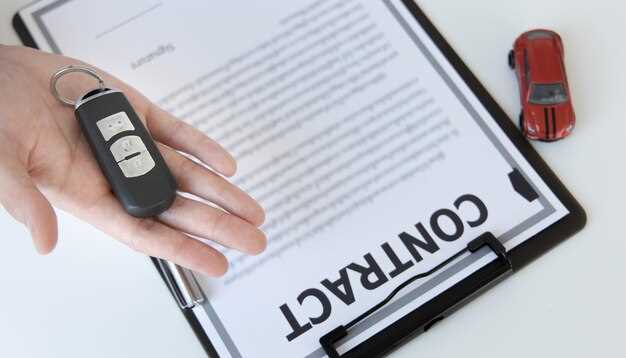
When it comes to the sale of your vehicle, understanding the necessary documentation is crucial for ensuring a smooth and legal transaction. Without the proper paperwork, you may encounter complications that could delay the sale or even lead to disputes down the road. This guide provides a comprehensive overview of the essential documents you need in order to sell your car and protect both yourself and the buyer.
First and foremost, the most important document is the Title Certificate. This legal document proves your ownership of the vehicle and must be transferred to the new owner upon sale. Additionally, you may also need to provide a Bill of Sale, which serves as a receipt for the transaction and includes key details about the sale, such as the purchase price and vehicle identification number (VIN).
Depending on your location, there may be other requirements, such as emission certificates or vehicle history reports. Ensuring you have all the necessary documents ready can help facilitate the sale and provide peace of mind that you are conducting the transaction in a legal manner. In the following sections, we will delve deeper into each required document and what it entails.
Proof of Ownership: Title and Registration Requirements

When selling your car, establishing proof of ownership is essential. This typically involves two critical documents: the title and the registration. The title serves as the legal document that indicates you are the rightful owner of the vehicle. Without it, you cannot legally transfer ownership to the buyer. It includes important details such as the Vehicle Identification Number (VIN), make, model, and your name as the seller.
The registration is another vital piece of paperwork that demonstrates the vehicle is licensed for use on public roads. While the title proves ownership, the registration showcases that you have fulfilled the necessary legal obligations to operate the car. In many states, both documents must be current, meaning that the registration should not be expired, and you should be listed as the owner on the title. Failure to provide these documents can complicate the sale process and may even prevent it entirely.
Before initiating the sale, ensure that the title is free of liens and that your name matches the information on the registration. If you have recently purchased the vehicle or it has changed hands multiple times, obtaining a clean title might require additional steps. Always verify the guidelines set by your local Department of Motor Vehicles (DMV), as requirements can vary by state.
In summary, the title and registration are critical documents in the paperwork for selling your car. They provide necessary proof of ownership and legal compliance, facilitating a smooth transaction between you and the buyer.
Necessary Bill of Sale: Details and Format
A Bill of Sale is a vital legal document that records the transaction of a vehicle. It serves as proof of the sale, protecting both the seller and the buyer by clearly outlining the terms of the transaction. This document is particularly important in states that require it for vehicle registration and title transfer.
The Bill of Sale should include specific details to ensure it is compliant with legal requirements. Key elements to include are:
1. Date of Sale: The exact date when the transaction takes place must be specified.
2. Buyer and Seller Information: Full names, addresses, and contact details of both parties involved in the sale are essential. This helps in establishing identity and accountability.
3. Vehicle Description: A thorough description of the vehicle, including the make, model, year, Vehicle Identification Number (VIN), and current mileage, must be included. This information offers clarity and avoids any potential disputes regarding the vehicle’s identity.
4. Sale Price: Clearly state the sale price agreed upon by both parties. This portion should also detail any deposit received and the balance due upon transfer of ownership.
5. Odometer Disclosure Statement: Many states require sellers to provide an odometer reading at the time of sale. This protects against fraud and ensures transparency regarding the vehicle’s condition.
6. As-Is Clause: Indicating whether the sale is “as-is” is crucial. This means that the buyer accepts the vehicle in its current state, and the seller is not responsible for future repairs.
7. Signatures: Both parties must sign the Bill of Sale. Their signatures signify agreement to the terms laid out in the document.
When formatting the Bill of Sale, a clear and organized layout is important. Use headings and bullet points to make it easy to read. Additionally, ensure that both copies of the Bill of Sale are signed and dated by both parties, with each retaining a copy for their records.
In summary, a well-prepared Bill of Sale not only complies with legal requirements but also protects the interests of both the seller and the buyer, ensuring a smooth transition of ownership during the sale of a vehicle.
Additional Paperwork: Emissions Certificate and Maintenance Records

When preparing for the sale of your vehicle, it is essential to gather all necessary paperwork to facilitate a smooth transaction. Among the documents buyers may request are the emissions certificate and maintenance records.
The emissions certificate verifies that your vehicle meets local environmental regulations. Many buyers prioritize this document as it provides assurance that the car operates efficiently and does not contribute excessively to pollution. In some regions, this certificate is mandatory for completing the sale, making it a crucial part of the paperwork you should have ready.
Additionally, maintenance records serve as a detailed account of the car’s service history. These records include receipts for oil changes, tire rotations, and any repairs performed. Having comprehensive maintenance documentation can significantly boost buyer confidence, as it demonstrates that the vehicle has been cared for properly. This paperwork can also justify your asking price by highlighting the car’s reliability and condition.
In summary, while preparing for the sale, ensure you have both the emissions certificate and detailed maintenance records readily available. This additional paperwork not only aids in meeting legal requirements but also enhances the attractiveness of your vehicle to potential buyers.



